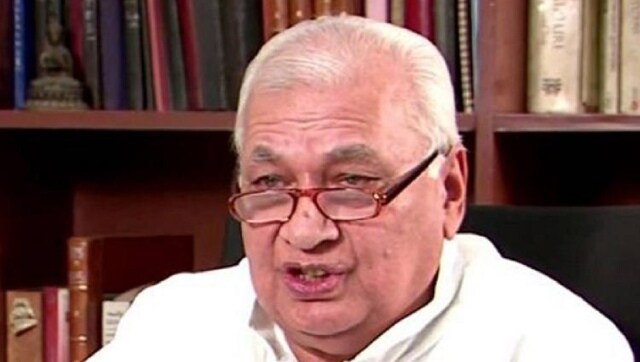Karnataka High Court upholds hijab ban, says it is not essential religious practice of Islam
The high court said that wearing Hijab is not an essential religious practice of Islam and that no compelling case was made out for invalidating the government order.

Representative image. PTI
After months of political upheaval and hearings on the matter, the Karnataka High Court on Tuesday upheld the government order effectively banning the wearing of the hijab (headscarves) by Muslim girl students in educational institutions in the state. The high court said that wearing Hijab is not an essential religious practice of Islam and that no compelling case was made out for invalidating the government order.
As per Bar&Bench, a three-judge Bench of Chief Justice Ritu Raj Awasthi and Justices Krishna S Dixit and JM Khazi held:
- Hijab is not a part of essential religious practices of Islam
- Requirement of uniform is a reasonable restriction on the fundamental right to freedom of expression under Article 19(1)(a)
- The government has the power to pass the government order; no case is made out for its invalidation
"We are of the considered opinion that wearing of hijab by Muslim women does not form an essential religious practice in Islam. Prescription of uniform is a reasonable restriction that students cannot object to," the bench said.
The full bench of the High Court comprising Chief Justice Ritu Raj Awasthi, Justice Krishna S Dixit and Justice J M Khazi was constituted on 9 February on a petition filed by girls from Udupi who prayed that they should be allowed to wear Hijab even inside the classroom along with the school uniform as it was part of their faith.
Section 144 imposed in several districts ahead of hearing
In Bengaluru, Police Commissioner Kamal Pant issued orders prohibiting all gatherings, protests and celebrations in public places from March 15 to 21. High Court officials held meetings with senior police officials on Monday evening, reports The Indian Express.
In Vijayapura, any gathering, agitation or protest of any type within the 200-metre radius of schools, pre-university colleges, degree colleges or other similar educational institutions is banned. Security has also been stepped up outside schools and colleges in Uttar Kannada district, sources told News18.
Dakshina Kannada DC Rajendra KV ordered a holiday in all schools and colleges for Tuesday. “External exams will happen as per schedule but internal exams of all schools and colleges will be postponed,” he was quoted as saying by ANI.
Deputy Commissioner of Kalaburagi also announced a holiday for schools and colleges for Tuesday and imposed Section 144 in the district. “In view of the Hijab row verdict tomorrow, the district administration has imposed Sec 144 effective from 8 pm today till 6 am on March 19. All educational institutions in the district will remain closed tomorrow," the Kalaburagi DC announced.
Schools and colleges will also remain shut in Udupi and Shivamogga districts, while prohibitory orders will be in place in Hassan, Chikkaballapura, Kolar, Dharwad and Davangere as well.
The hijab controversy
On 1 January, six girl students of a college in Udupi attended a press conference held by the Campus Front of India (CFI) in the coastal town protesting against the college authorities denying them entry into classrooms wearing headscarves.
This was four days after they requested the principal permission to wear hijab in classes which was not allowed. Till then, students used to wear the headscarf to the campus, but entered the classroom after removing it, college principal Rudre Gowda had said.
"The institution did not have any rule on hijab-wearing since no one used to wear it to the classroom in the last 35 years. The students who came with the demand had the backing of outside forces," Gowda had said.
As the issue of Hijab versus saffron scarves spread to several educational institutions in many parts of Karnataka, the state government announced holiday from February 9 to February 15 in all the pre-university colleges and from February 9 to February 16 in degree and diploma colleges.
The girls then approached the Karnataka High Court seeking relief and quashing the government order on February 5 restraining students from wearing any cloth that could disturb, peace, harmony and public order.
The full bench of the High Court has been hearing the case on a day-to-day basis since February 10.
In its interim order, the bench asked the state government to reopen the educational institutions, which were hit by the agitation, and restrained students from wearing Hijab and saffron scarves in the classroom till the final order is delivered.
Read all the Latest News, Trending News, Cricket News, Bollywood News, India News and Entertainment News here. Follow us on Facebook, Twitter and Instagram.
also read

The issue with St. Stephen’s College isn’t just confined to cancel culture; its very DNA is a problem
As India is fast shedding its colonial baggage, St Stephen’s College may find itself redundant, out of sync with today’s realities, and caught in a time warp

International Women’s Day: Lifting the veil of ignorance over Muslim women’s attire
The hijab row discourse offers a binary of either bitterly attacking the hijab or aggressively defending its religious sanction. Both of these betray the crucial element of choice

Nehruvian secularism places Muslims not as equals but as a permanent minority to Hindus: Arif Mohammad Khan
The Kerala Governor says that the kind of secularism pursued in India creates distrust among Hindus and Muslims, placing one against another as competitors for national resources